Are you looking to make a difference through charitable giving but unsure about the rules that govern it? Understanding the essential guidelines can help you maximize your impact while ensuring compliance with tax regulations. From recognizing qualified organizations to figuring out the deductions you can claim, navigating charitable giving doesn't have to be overwhelming. Join us as we break down these important rules and help you become a more informed philanthropist!

Tax Deductibility
Charitable donations can provide significant tax benefits for individuals and corporations under the Internal Revenue Code. Contributions made to qualified 501(c)(3) organizations are generally tax-deductible, allowing donors to reduce their taxable income. The maximum allowable deduction for cash donations is typically 60% of adjusted gross income (AGI), while donations of property are often limited to 30% of AGI. Donors must obtain a written acknowledgment from the charity for contributions exceeding $250, ensuring proper documentation for tax filing purposes. Specific regulations apply to certain types of donations, including appreciated assets like stocks or real estate, potentially resulting in capital gains tax avoidance.
Donation Limits
When engaged in charitable giving, it is vital to understand the donation limits imposed by IRS regulations. For individual taxpayers in the United States, the deduction limit for cash donations to public charities generally stands at 60% of adjusted gross income (AGI). In 2023, taxpayers can benefit from higher deduction limits due to the Tax Cuts and Jobs Act, which temporarily allows for 100% deductions for certain contributions in response to disaster relief efforts. For donations of property, such as stocks or real estate, the limit typically ranges from 30% to 50% of AGI, depending on the charity type. Additionally, all donations exceeding $250 require a written acknowledgment from the charitable organization, which must include the value of goods received, if any. Keeping thorough records of all donations, including receipts and acknowledgment letters, is essential for accurate tax reporting and maximizing potential deductions.
Eligible Organizations
Eligible organizations for charitable giving include designated nonprofits, public charities, and certain government entities. Nonprofit organizations must be classified under section 501(c)(3) of the Internal Revenue Code to qualify for tax-deductible contributions. These organizations serve a wide array of purposes such as education, scientific research, health care, and religious activities. Public charities must receive a substantial portion of their support from the public or government to maintain eligibility. Additionally, donor-advised funds (DAFs) and private foundations have specific regulations regarding giving limits and organization types. State registration requirements may also apply, impacting the eligibility of organizations within specific jurisdictions, impacting charitable giving regulations.
Record Keeping Requirements
Charitable organizations must maintain meticulous records to ensure compliance with IRS regulations governing tax-deductible contributions. For donations exceeding $250, a written acknowledgment from the charity is mandatory, detailing the contribution amount and date. For cash contributions, such as checks or electronic transfers, donors must retain bank statements or receipts proving the transaction. Additionally, organizations should track non-cash donations, including items like clothing or furniture, with fair market value estimates documented. Reports must be generated annually, ideally in alignment with the organization's fiscal year, reflecting all fundraising activities and donor information, ensuring transparency. Reliable record-keeping aids in effective audits by the IRS, should they occur.
Reporting Obligations
Charitable organizations must adhere to specific reporting obligations to maintain transparency and trust with donors. The Internal Revenue Service (IRS) requires non-profits, such as 501(c)(3) entities, to file Form 990 annually, detailing financial activities, revenue sources (like donations exceeding $250, which necessitate written acknowledgment), and program accomplishments. In the state of California, further regulations may require compliance with the California Nonprofit Integrity Act of 2004, ensuring that organizations with gross revenues over $25,000 submit annual reports to the Attorney General's Office. Accurate record-keeping of donations and expenditures is essential, as it provides clear insight into how funds are utilized, fostering accountability. Organizations should also be aware that failure to comply with these reporting requirements can result in penalties or loss of tax-exempt status, impacting their ability to receive charitable contributions.

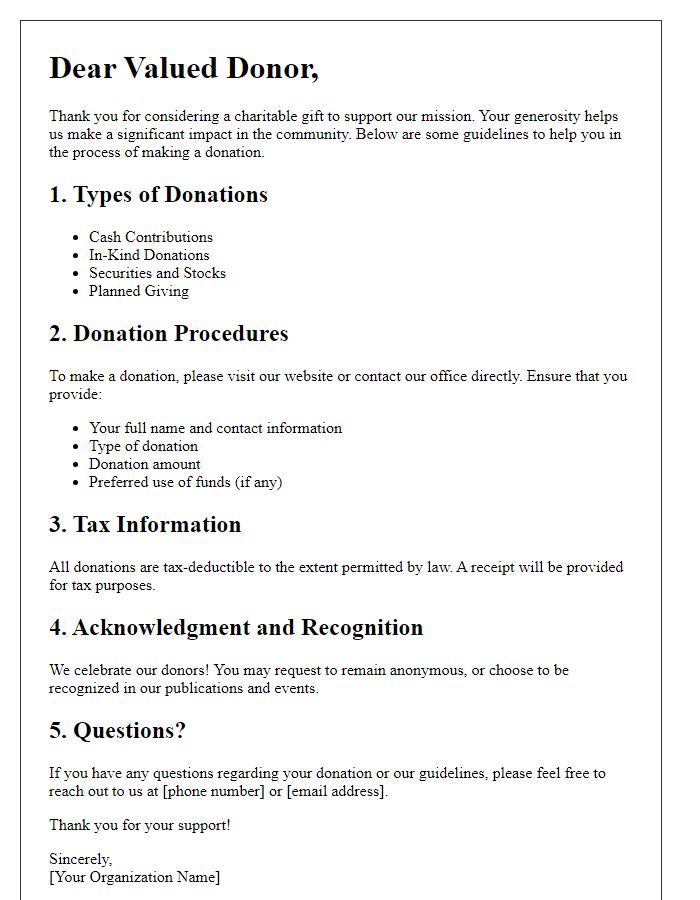
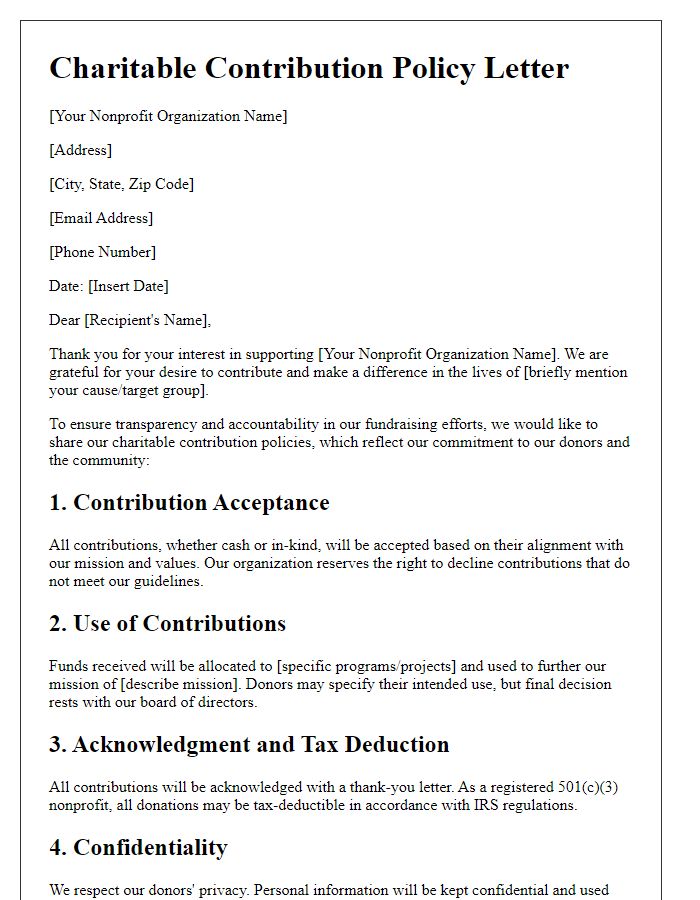
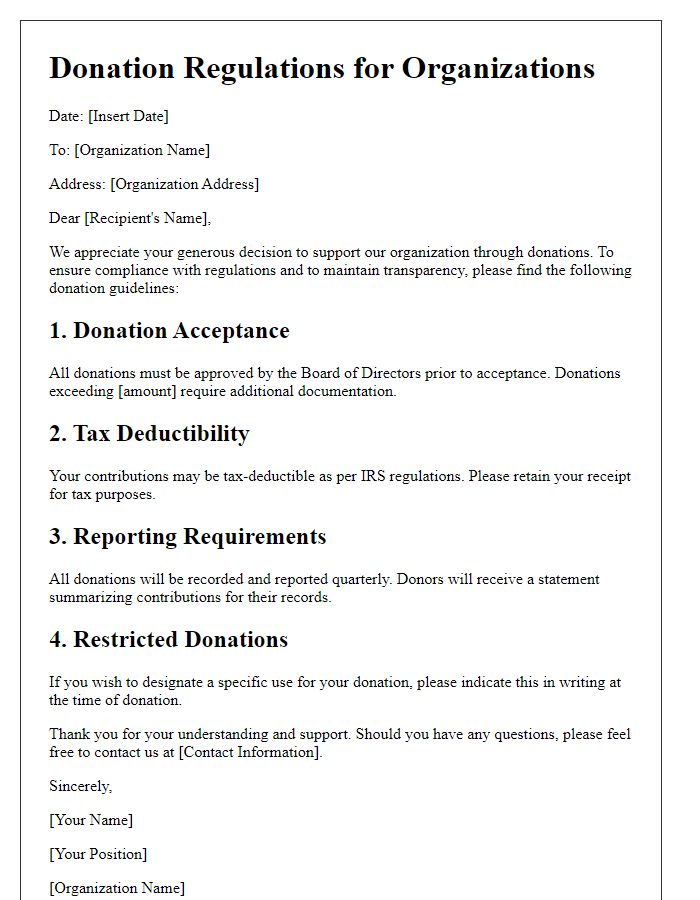
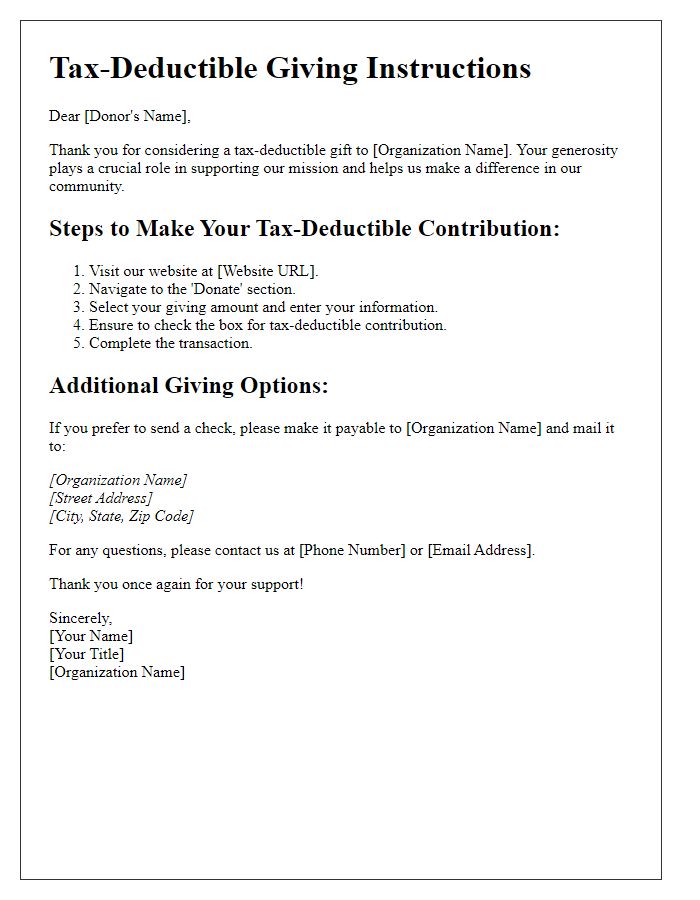
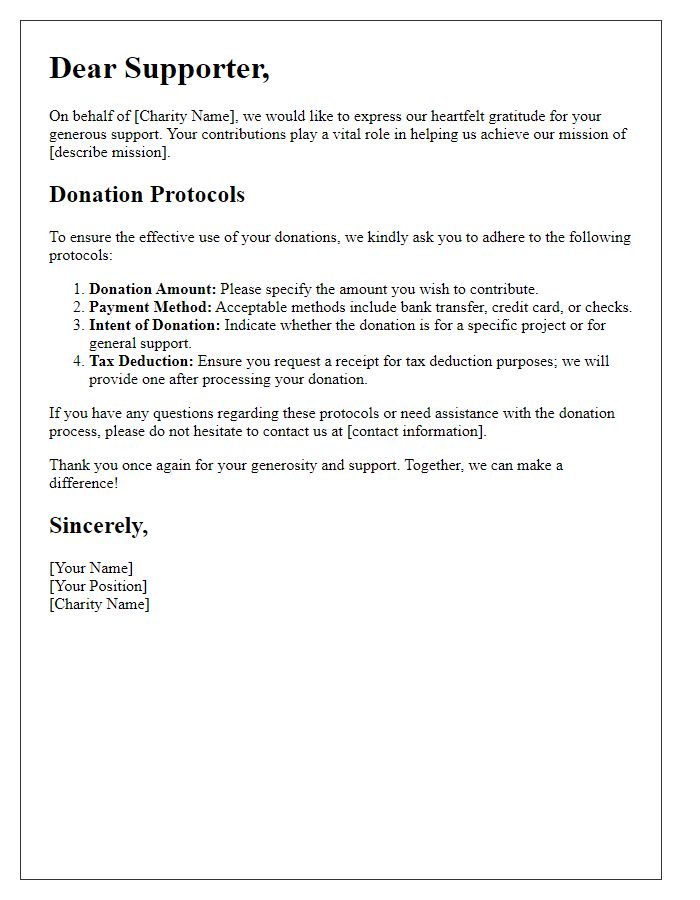
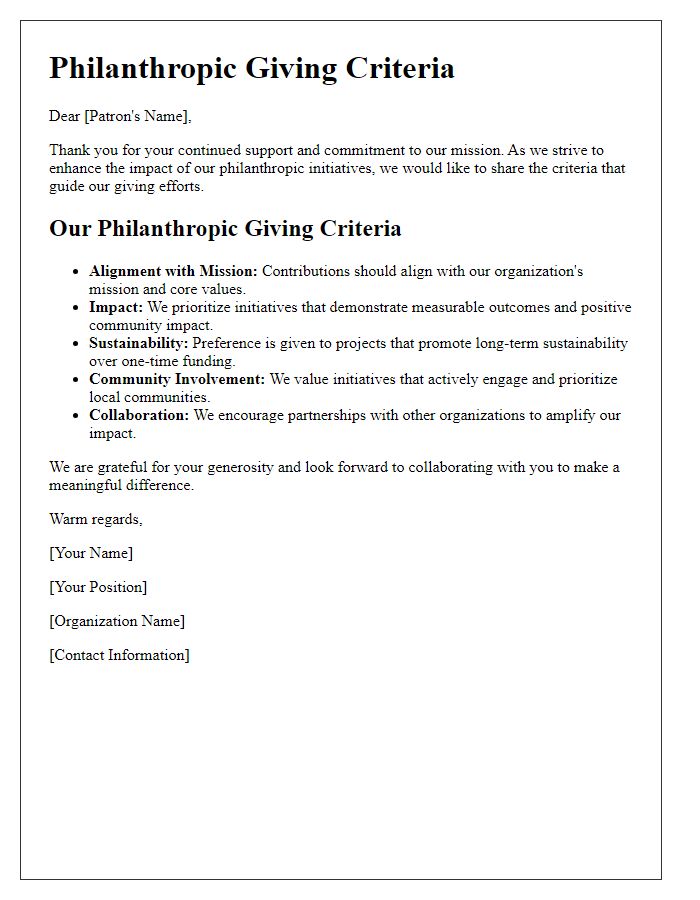
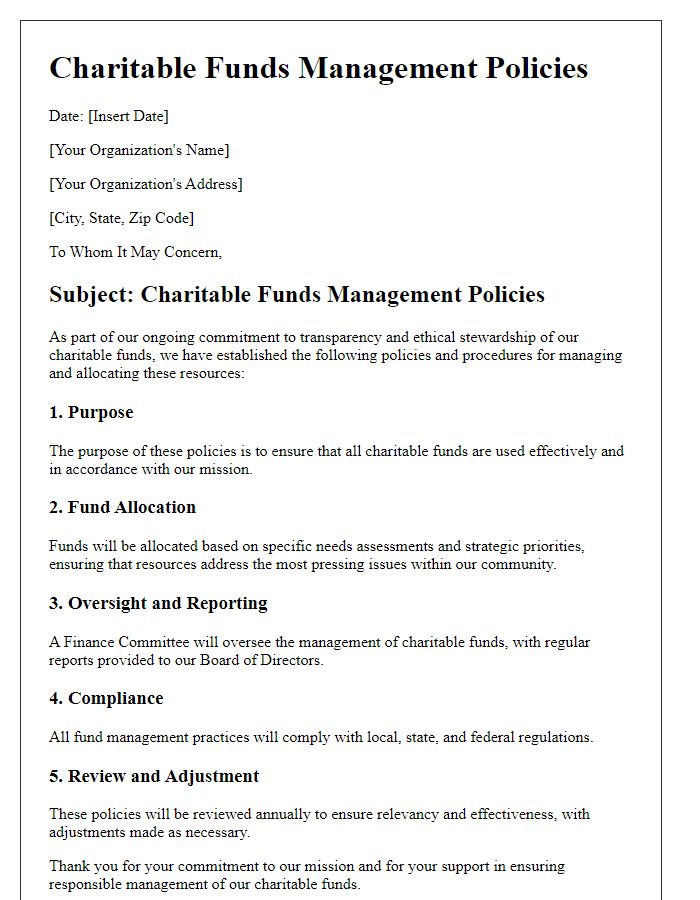
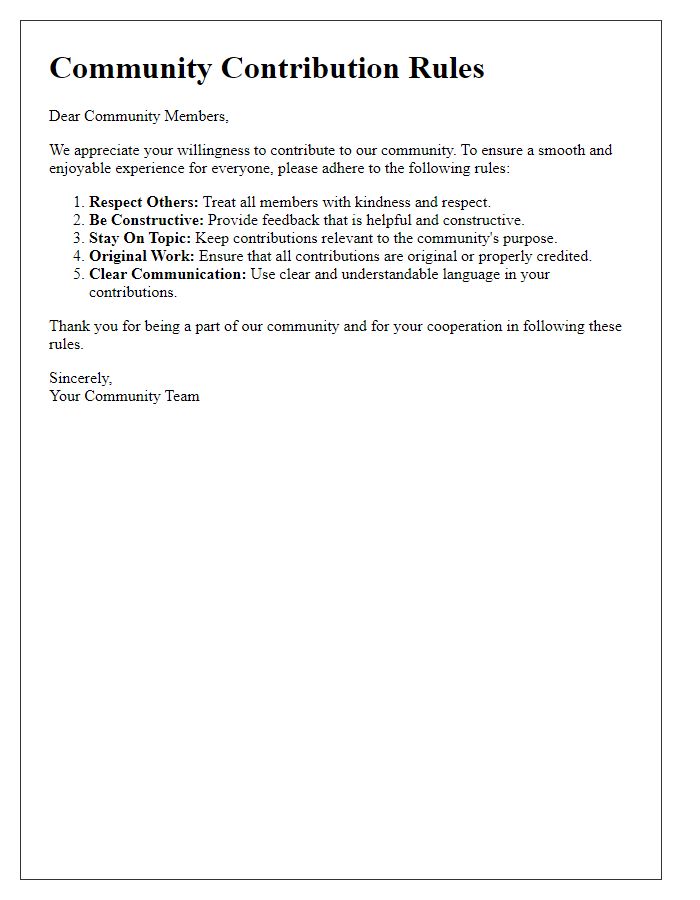
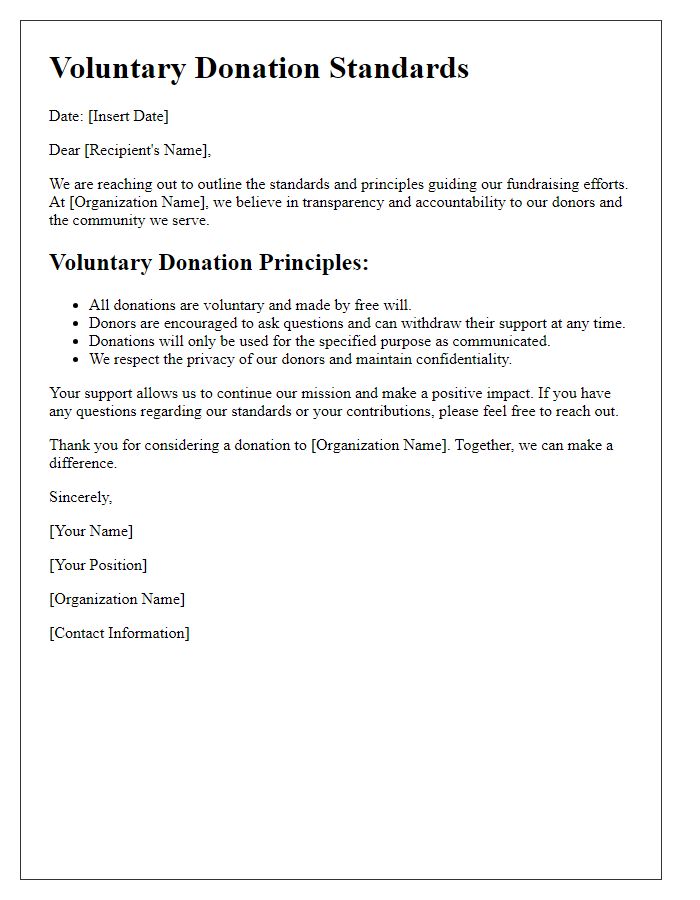
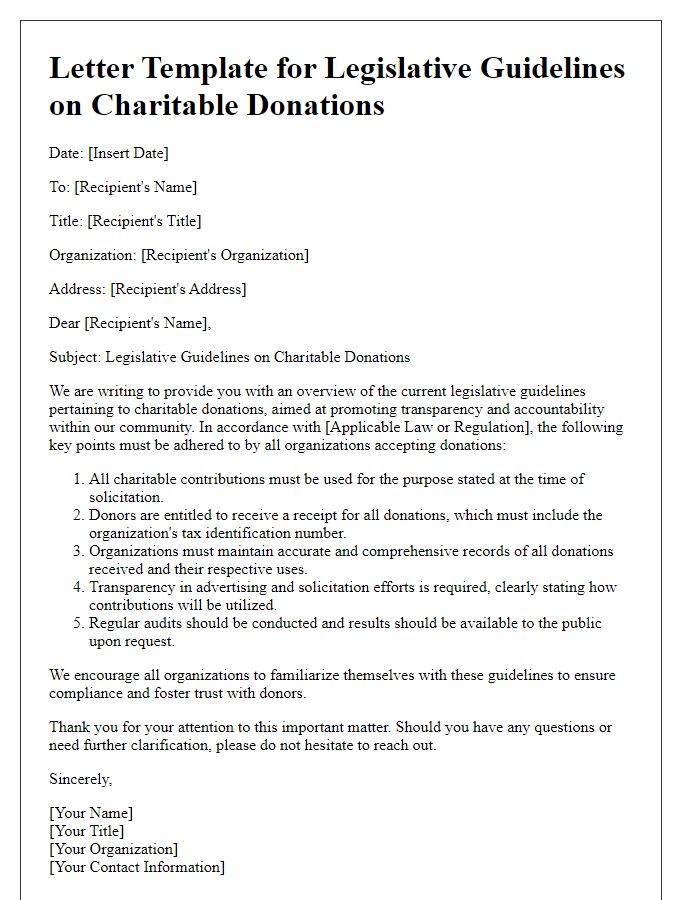

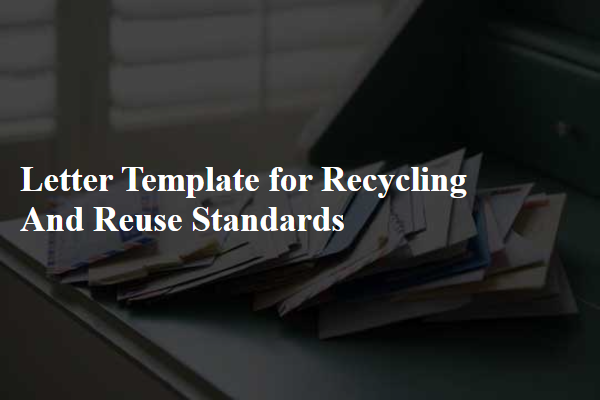
Comments